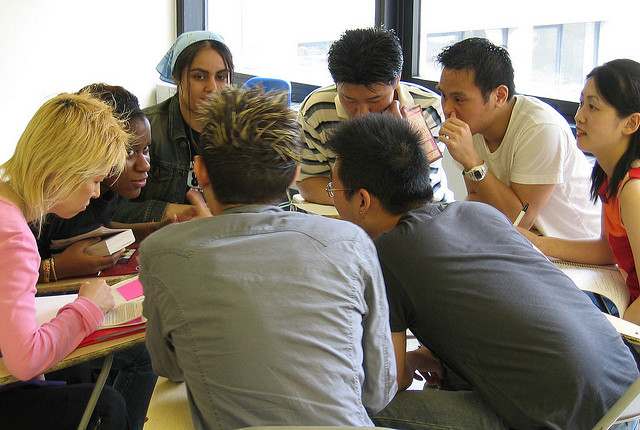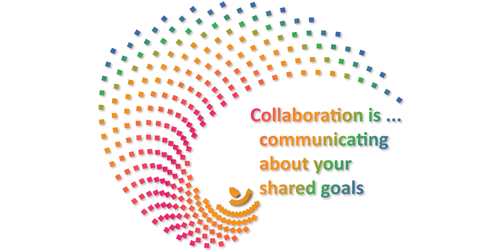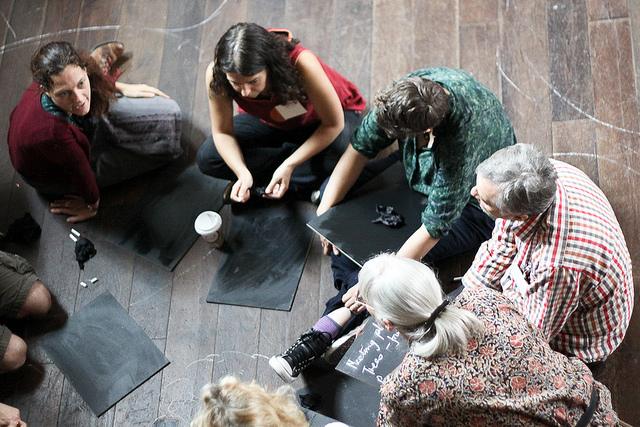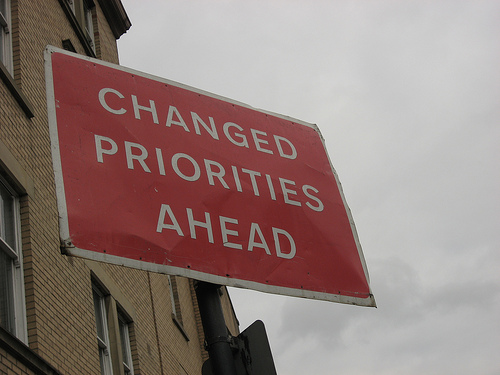You may hear someone say, “I’ve reached my limit!” or, “He has stepped over the line!” They complain about others working on a project—partners, teammates, managers, staff, or leaders—and about other ways of doing things. With compassion, you nod and listen. Conflict is no stranger to any of us. Many people rely on a plan-work-argue-limit approach when working with others on writing or…
Law 10. Celebrate, then evaluate
Today, I received a letter from a project leader in the mail. I chuckled and got a warm, fuzzy feeling. Here I was, thinking about the tenth and last law of collaborative writing—how important it is to recognize all collaborators and celebrate your collective achievement. Then a thank-you note arrives. (And I did not Photoshop that time stamp….
Collaborative Writing Law 9. Editors, translators, and designers are collaborators, too
Writing teams need editors. Depending on the context, the project might need a translator and some graphic designers, too. In fact editors, translators, and designers are all key collaborators. They offer advice about how specific requirements are best incorporated into the final product. Depending on the kind of editing to be done, there are roles for editors…
Law 8. Collaboration is all about communication and shared goals
We are all familiar with collaboration that fails because of insufficient effort in one direction or another. Here is a a proposal that takes into consideration all the factors at play when a group of people collaborate. The formula I propose shows how to create collaborative success. Yes, there is probably a more complex or correct equation for what it takes to make…
Collaborative Writing Law 7. Model thy structure and content
Why do we try to reinvent the wheel? The world is full of examples of how information can be organized. Pick a content model. Any model! Well, you’re right. Not just any model will do. You want the one that fits your content best and helps your team manage the work. That’s why knowing the requirements and…
Collaborative Writing Law 6. When in doubt, check your assumptions
Assumptions create obstacles to free-flowing collaboration. If a project is not advancing as expected, there are probably some hidden assumptions to bring to light. Assumptions can affect anything from the writing mandate to the final output, and all the activity and people in between. The root of assumptions is expectations—something every project and everyone involved comes ready charged…
Law 5. Agree on practices and tools and track progress
A collaborative writer is someone who works with at least one other person to produce a text and achieve a common purpose. Now, a group of writers can produce a lot of text. To ensure that all those pieces go together well, the team should agree on practices and tools while tracking progress throughout the phases of…
Law 4. Assess the requirements for the project (even if there’s no time)
You have already established your writing mandate with Law 3. So does the team start scribbling yet? Not quite. There’s an Arabic saying about good, expressive prose: (If it takes) No skill to understand it, (then it takes) mastery to write it.” — cited by Taleb in his book on anti fragility (I’ve added parenthetical notes) In writing,…
Law 3. Identify the writing mandate and agree on a process
When there is writing to be done, most people expect some magic to happen. The mystique surrounding the creative process is powerful. There is no magic, though. Setting words on the page is a process and having a plan is key. Very early on in the development process, your team must capture the expectations for the project….
Law 2. Respect thy collaborators as thyself
Collaboration is about working with other people. Many hands make write work! And cupcakes have been known to make projects hum along nicely. Collaborative writing involves many different kinds of expertise, since contributions are collected from various people and sources. Often that can be a lot of fun. When things don’t go well, though, nothing will smooth the…










